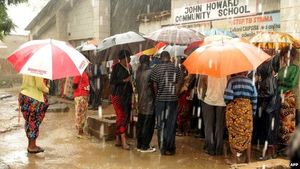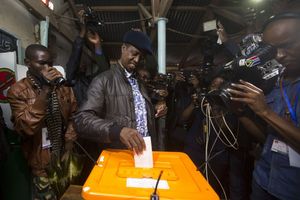Elections in Zambia
While we were all on break from school, things in Zambia certainly haven’t been quiet! Following the death of Michael Chilufya Sata last October, Zambia held elections for a new president a few weeks ago. On January 24, our partner community elected Edgar Lungu, the candidate from the Patriotic Front party, to be their new leader.
Elections were quite a challenge this year. Voting started on January 20, but it continued for four days, due to rain and other logistical issues that interfered with voting in many parts of Zambia. As many as 160 polling stations were unable to open due to weather issues, hurting voter turnout. To make matters worse, because Zambia has had so many parliamentary elections lately, many citizens have simply grown weary of voting and thus did not come out for the election. As a result, only 32.36 percent of eligible voters voted in this election. Additionally, issues have persisted even after the elections. Because Lungu only won with 48.3 percent of the vote, his victory is being contested. Hakainde Hichilema, leader of the United Party for National Development (UPND), received 46.7 percent of the vote, and he and some of his supporter believe that the election was unfair or even rigged. Hichilema spoke out against violence towards his supporters, and he also stated that there were “irregularities” in the counting process. He has called for voting reform in Zambia, and he continues to be a strong contender in the next election, which will take place in 2016.

Political conflict has some potential to disrupt the work that we are trying to do in Zambia. However, because Lungu is from the same party that Sata represented, policy may not change too radically. Additionally, we deal largely with local government and NGOs when we work in Zambia, and those will probably be less affected than the nation as a whole. The SADC gave the election their stamp of approval, saying that the voting happened peacefully, so it is unlikely that they will struggle with the new power. However, strong political disagreements may lead to some unrest in our partner community, and we, as always, must continue to put in extra effort to be sensitive and respectful towards the politics of the people that we are trying to help. In any case, we will continue in our mission to help the people of Naluja, despite any new challenges or changes that this election might bring.
